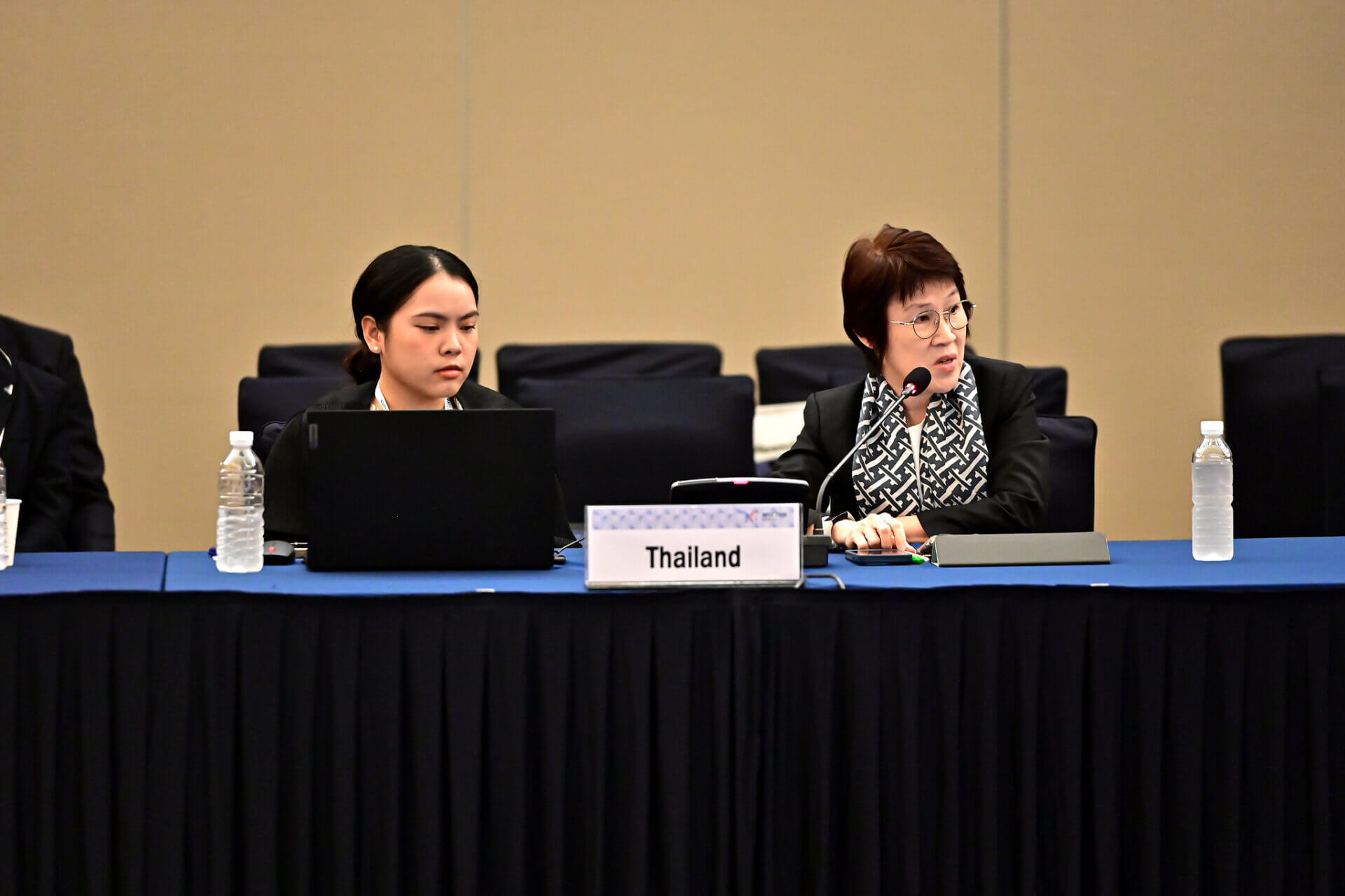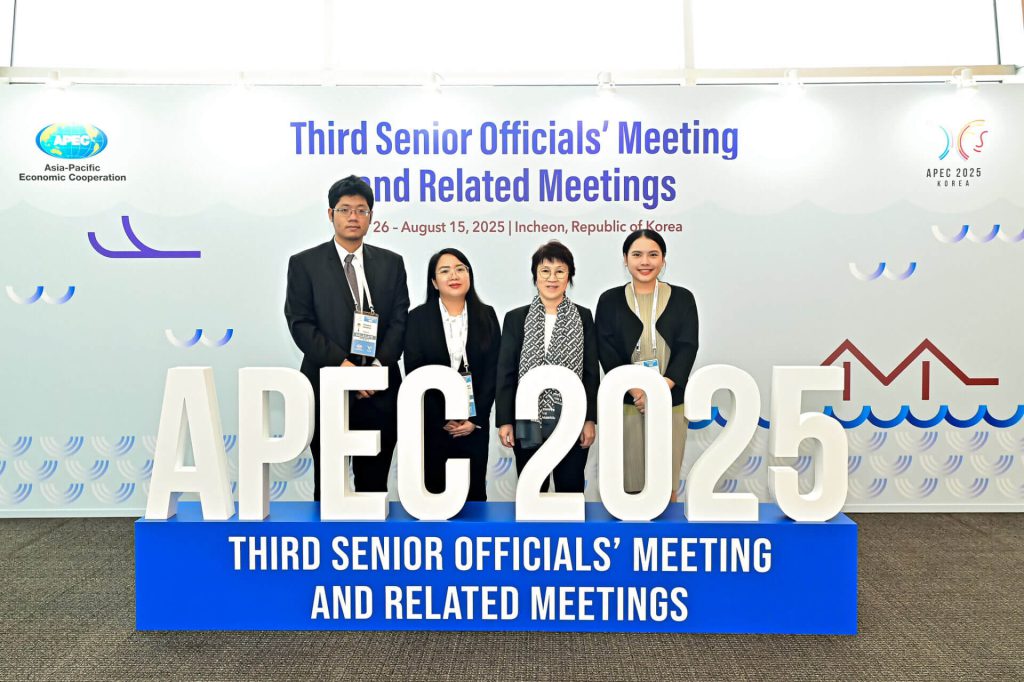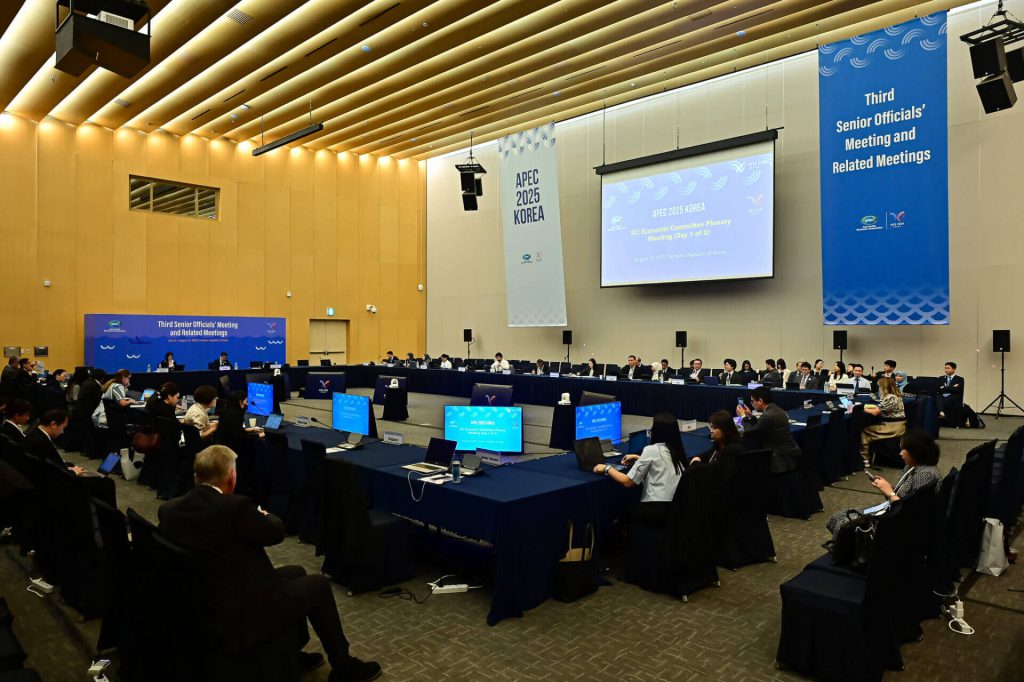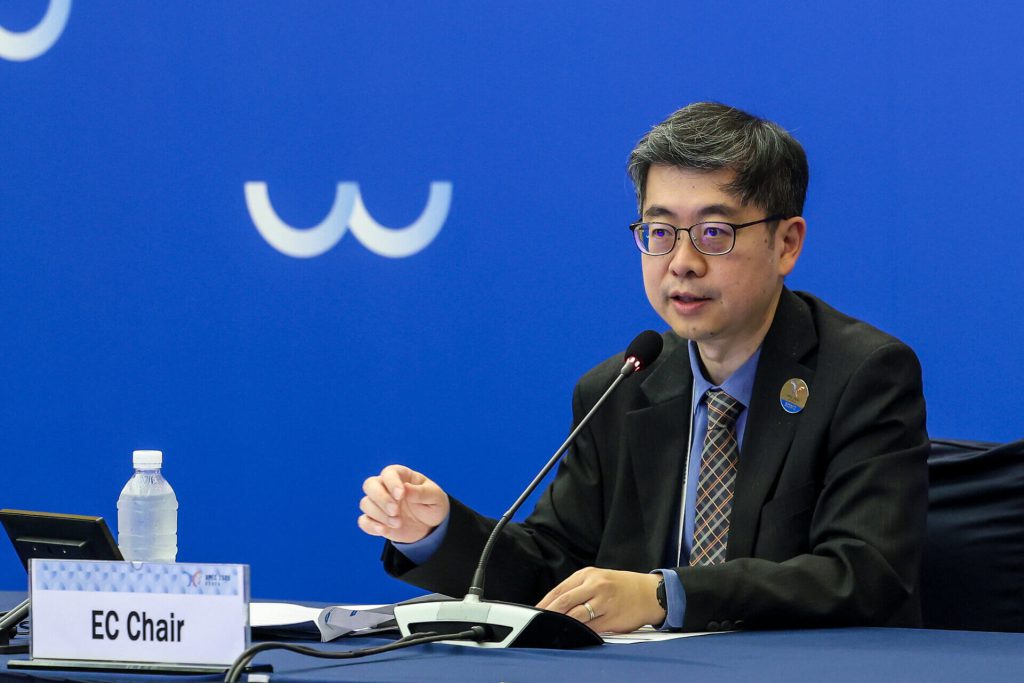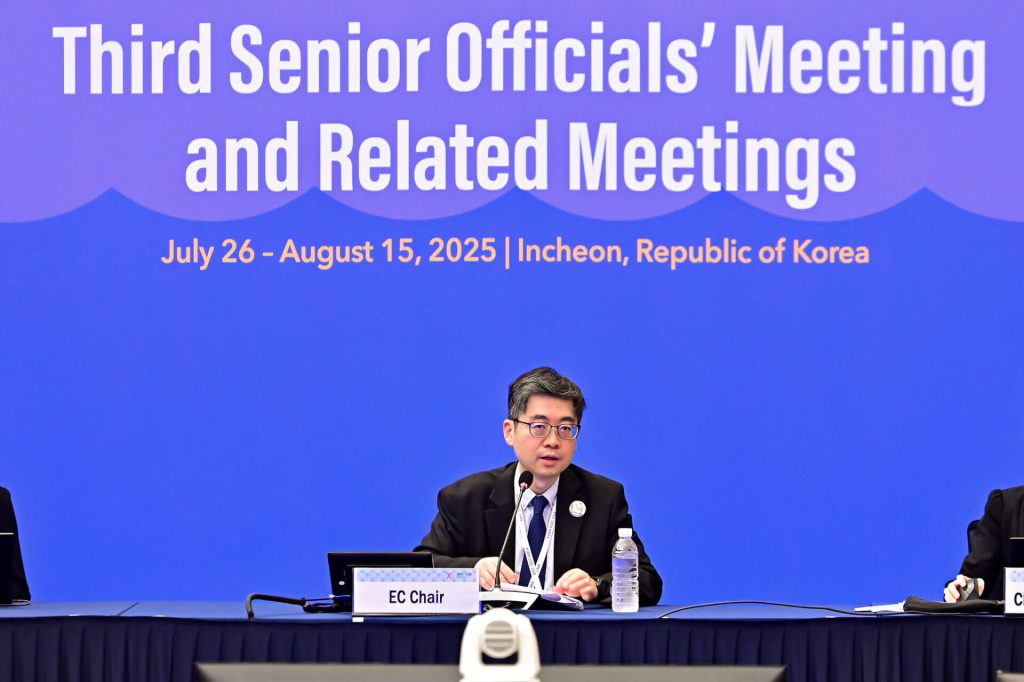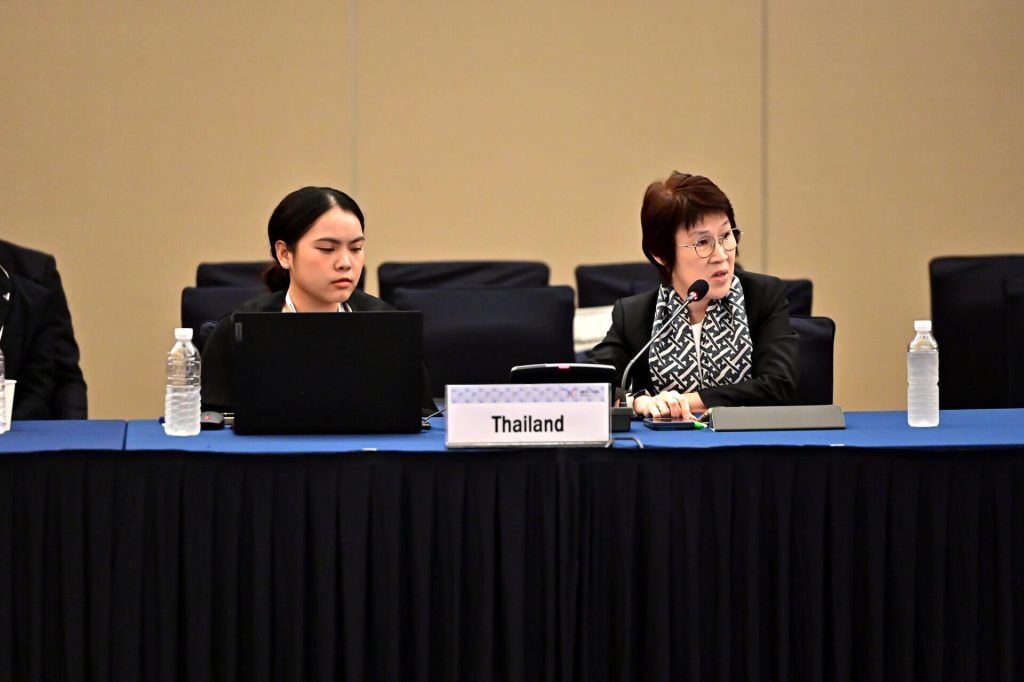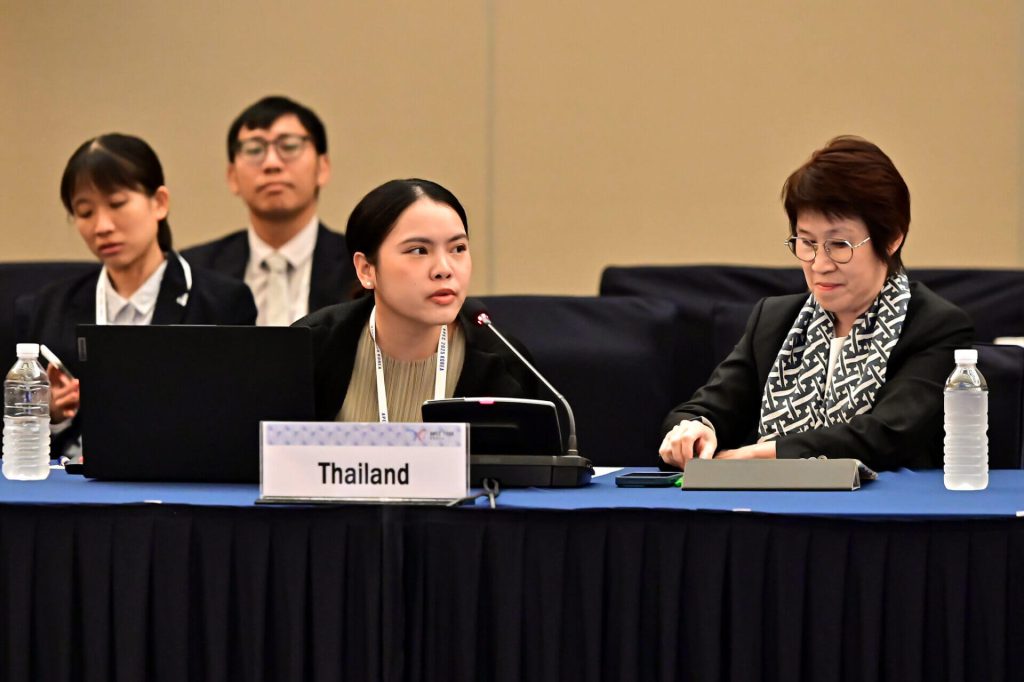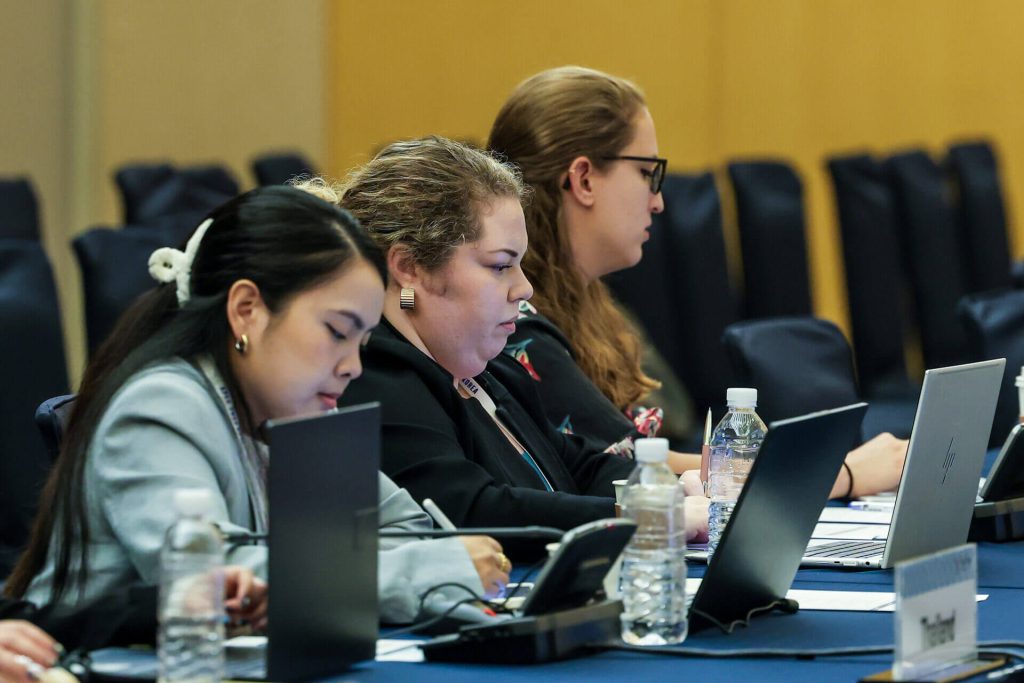On August 12-13, 2025, the Republic of Korea, as the APEC 2025 host, organized the 2nd APEC Economic Committee (EC) Meeting of 2025 during the Third Senior Officials’ Meeting and Related Meetings (SOM3) in Incheon, Republic of Korea. Ms. Sasithorn Palatthadech, Deputy Secretary-General of the National Economic and Social Development Council, led the Thai delegation in attending the meeting.
The APEC 2025 theme is “Building a Sustainable Tomorrow”, focusing on three key areas: Connect, Innovate, and Prosper. The EC plays a crucial role in promoting structural reforms in policies and regulations to strengthen the economic system, enhance connectivity, and improve the well-being of people in the region.
The 2nd EC Meeting of 2025 discussed the preparation of the final review report on the implementation of the Enhanced APEC Agenda for Structural Reform (EAASR), which is APEC’s 5-year structural reform agenda for 2021-2025. Progress was noted in all four pillars: (1) Creating an enabling environment for open, transparent, and competitive markets; (2) Boosting business recovery and resilience against future shocks; (3) Ensuring that all groups in society have equal access to opportunities for inclusive, sustainable growth and greater well-being; and (4) Harnessing innovation, new technology, and skills development to boost productivity and digitalization. However, limitations in the business regulatory environment were identified, especially in the services trade sector, such as restrictions on foreign market entry, labor mobility, competition constraints, and increasing digital regulatory barriers. Progress also varied among economies, and there was a lack of monitoring mechanisms and coordination with other APEC mechanisms.
Additionally, the meeting discussed the development of the Strengthened and Enhanced APEC Agenda for Structural Reform (SEAASR) as a work plan for structural reform efforts from 2024 to 2030, succeeding EAASR. It emphasizes developing clearer and more specific monitoring and evaluation mechanisms, promoting private sector participation, and coordinating with other APEC mechanisms. The meeting also tracked progress on the 2025 APEC Economic Policy Report (AEPR) on Structural Reform to Increase Participation in the Formal Economy, which focuses on institutional and regulatory structural reforms, human resource development, and promoting access to markets and financial services. Discussions were held on preparations for the 2026 AEPR on Structural Reform and AI-Driven Digital Transformation to address challenges and opportunities in the region’s digital transition.
Furthermore, the meeting received progress reports on various activities, including work under the Friend of the Chair (FotC) groups, workshops, studies, and policy proposals related to EC issues such as the role of strong governance in structural reform, online arbitration, diversity in sustainability reporting standards, and promoting indigenous economies. The meeting also discussed future approaches to reforming EC’s operational and administrative structures.
The Deputy Secretary-General, as head of the Thai delegation, emphasized the urgent need for structural reforms to enhance resilience to economic volatility and promote long-term inclusive and sustainable growth. Particularly, increasing participation in the formal economy is crucial for sustainable economic development. Thailand welcomed APEC economies’ progress in reducing the size of the informal economy, as evidenced by the decrease in the informal economy’s share from 52.6% to 48.4% between 2000 and 2020 in Thailand. However, Thailand remains committed to addressing informal economy issues, especially among marginalized and vulnerable groups lacking access to quality education and formal employment, to achieve true inclusivity. Thailand’s approach to promoting participation in the formal economy is based on an inclusive development framework through the 5-year Labor Skills Development Plan (2023-2027), which focuses on developing skills of informal workers to enable their entry into formal employment. Additionally, Thailand supports the “Thailand Zero Dropout” policy to encourage out-of-school children and youth to return to the education system and training, preparing them with necessary skills for long-term economic participation and employment.
Furthermore, the NESDC delegation also participated in related workshops, including the 18th APEC Good Regulatory Practice Conference, which focused on regulatory reforms to keep pace with digital transformation, respond to technological changes, especially AI and quantum computing, and address new cybersecurity threats. The Joint Workshop on Services and Structural Reform discussed developing regulations to promote services trade in line with the current context of increased labor flexibility and mobility, cross-border internet-based services trade, and new forms of services trade that do not respond to current regulations. The Workshop on Structural Reform and Disability exchanged views on promoting the use of assistive technology through government policies and private sector investment promotion, emphasizing the need for involvement of persons with disabilities at every stage to reduce economic and social inequalities stemming from disability. The Workshop on Using International Instruments to Promote Digital Trade in a Holistic Legal Ecosystem focused on using the United Nations Commission on International Trade Law (UNCITRAL) model laws to promote regulatory consistency in support of international digital trade.
ติดตามข้อมูลข่าวสารการดำเนินการระหว่างประเทศของ สศช. For updates on NESDC’s international activities, please visit https://inter.nesdc.go.th
